#miami townhouse
Photo







🤩 Super excited to announce the launch of our exclusive 'Airbnb Friendly' Townhome project located in Hollywood Florida, with my partner Josh!🥂 Artist Townhouses is an incredible investment opportunity, with estimated returns of up to 15% in the first year.*
Artist Townhouses
8 luxury split-level townhouses 🏡
3 bedrooms | 2.5 bathrooms
1,600 sf interior with private enclosed garage, outdoor space and terraces
Starting at $899,000
The townhouses come fully finished with modern Italian cabinetry, quartz waterfall countertops, frameless glass enclosures in bathrooms, porcelain flooring.
Ideally situated in Hollywood, Artist Townhouses is located just minutes away from the Fort Lauderdale International Airport, I-95, the Beach, The Broadwalk, Artist Circle, nightlife, restaurants and artwork pavilion.
The construction is underway and the project will be completed in 2024.
For more information, please send me a direct message.
* Estimated returns are based on current market conditions and may vary.
📍 Hollywood, FL
#townhome#townhouse#townhousemiami#hollywoodflorida#new development#new construction#Miami Real Estate#miami broker#miami townhomes#miami townhouse#miami townhouses#miami townhome#joan's homes miami#Miami Realtor
6 notes
·
View notes
Text
Imagine a blend of two townhouses made into a single stunning home that retains its external historic properties while the interior adopts a contemporary identity.

@knofdesign provides us a real model of such craftsmanship with its rendering of a luxe residence balanced between formal, traditional aesthetics and a bold approach through modern furniture and decor.









#modernfurniture#moderndesign#designers#miami#modernhomes#contemporarydesign#furniturestores#sofas#interior design miami#interiordecoration#luxedecor#love design#luxuryfurniture#modern townhouse
4 notes
·
View notes
Photo

SALE IMAGE: Isaac Ike Perlmutter DATE: 04/10/2023 ADDRESS: 2 Sloans Curve Drive MARKET: Palm Beach ASSET TYPE: Townhouse BUYER: Laura Perlmutter; Isaac Ike Perlmutter - Disney’s Marvel Entertainment SELLER: Sandra Bornstein; Richard Bornstein - Koffler Group SALE PRICE: $10,000,000 SF: 4,500 ~ PPSF: $2,222 #Miami #RealEstate #tradedmia #MIA #PalmBeach #Townhouse #LauraPerlmutter #IsaacIkePerlmutter #DisneysMarvelEntertainment #SandraBornstein #RichardBornstein #KofflerGroup
#Miami#RealEstate#tradedmia#MIA#PalmBeach#Townhouse#LauraPerlmutter#IsaacIkePerlmutter#DisneysMarvelEntertainment#SandraBornstein#RichardBornstein#KofflerGroup
0 notes
Text
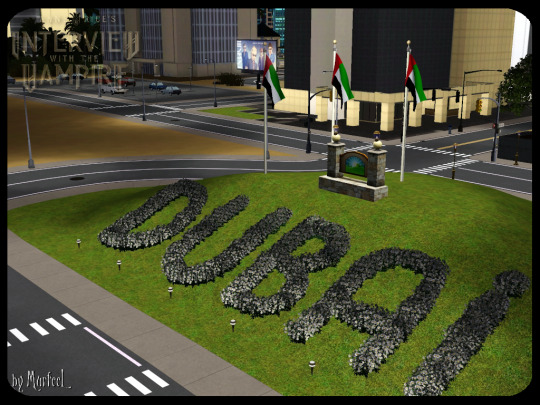
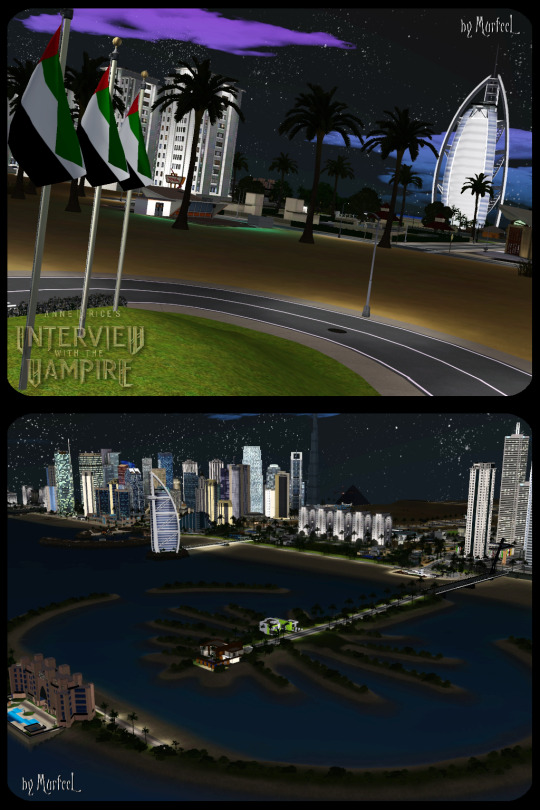


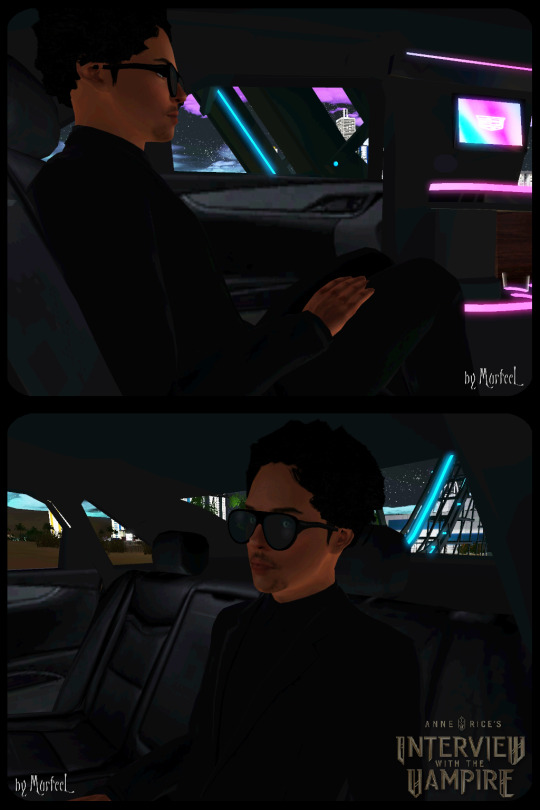
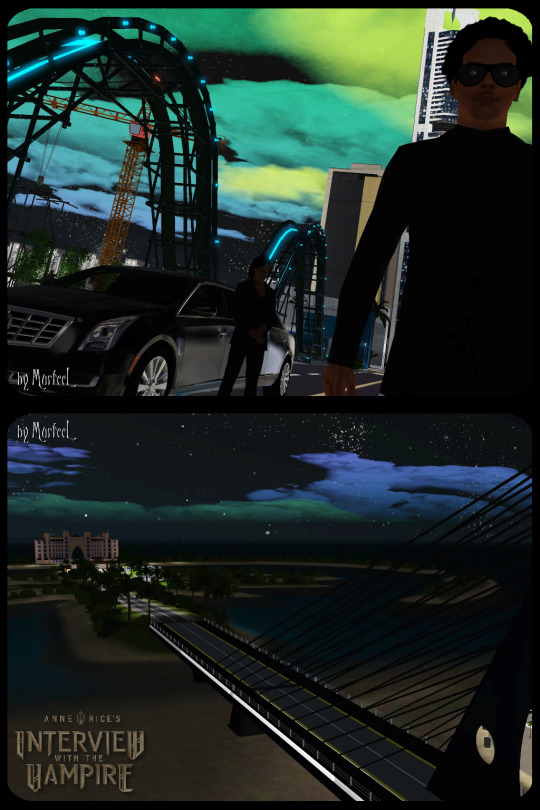

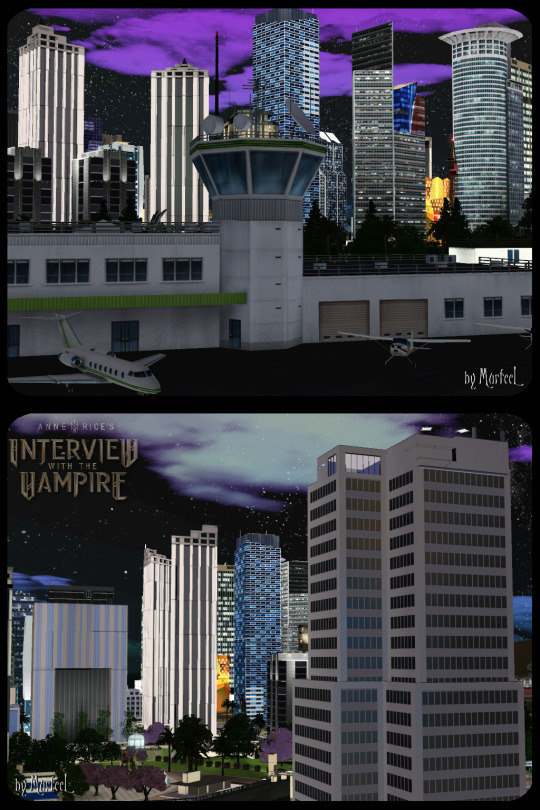
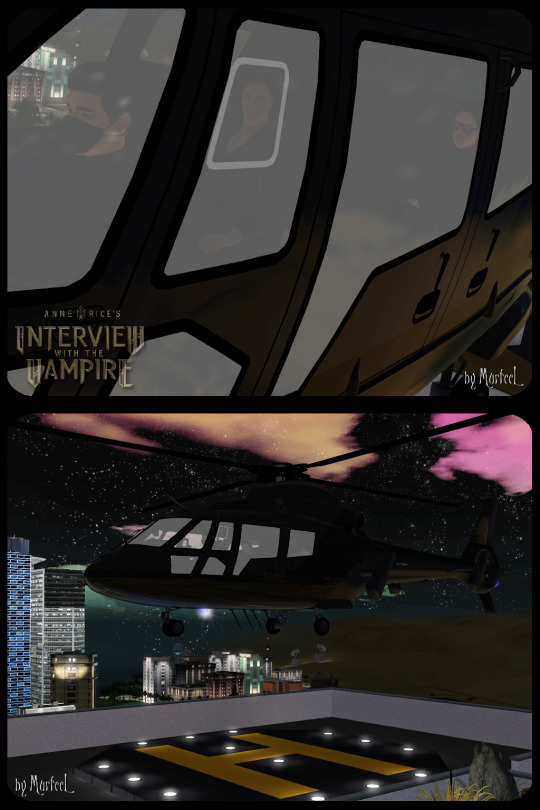
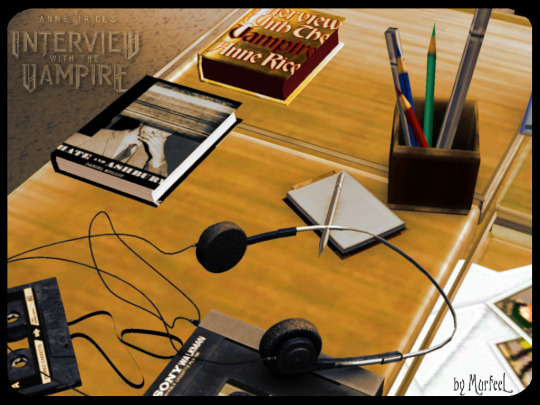
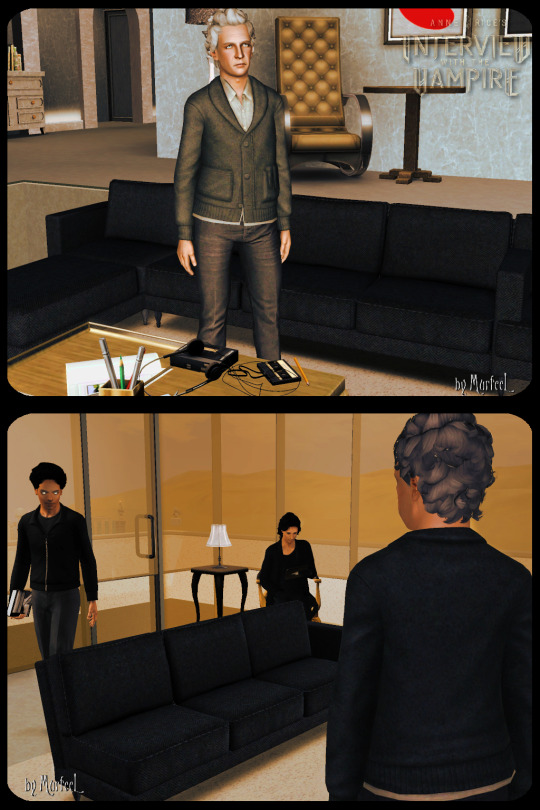



IWTV 2022 INSP - The Most Dangerous Man in the World
Daniel: I told my editor I was meeting with the most dangerous man in the world. Gave him two choices. He came back with Bezos and Putin!
Louis: I wasn't sure you'd remembered me. Your book makes no mention of our prior meeting.
Daniel: Gritty memoir, drugs, humiliation, self-pity kind of thing. Mention vampires in one of those, readers tend to call bulls***. You've got your own hangar at the airport, privileges on the Royal Meydan Bridge, and zero presence online. I know the Emirates are big on privacy, and that's probably important to you, but I gotta ask: what does it cost, this haven't-aged-in-half-a-century, killer views in all directions anonymity?
Louis: Quite a lot. I have to be very careful whom I let in.
Daniel: Yeah, well, things didn't end well the last time, so forgive me if I'm a little nervous!
Louis: Back in San Francisco, you said, and I paraphrase, "Give it to me. Make me a vampire now."
Daniel: In the eyes of a 20-year-old, you were wasting the gift.
Louis: You're in your 20s, Rashid. What do you think?
Rashid: Well, Mr. du Lac presides in the most desired real estate in the country. I do not see the "waste" Mr. Molloy sees.
Daniel: Yeah, well, he lived in a dump the last time we did this.
Louis: I'd give it to you now.
– Interview with the Vampire, S01E01, S01E06
MY THOUGHTS & CC CREDITS
MY THOUGHTS
My contribution to @iwtvfanevents' Vampterview rewatch of IWTV Season 1! \(^0^)/ I basically rebuilt Loumand's Dubai Penthouse from scratch, cuz in my other post it was on the same lot as Loustat's 1132 townhouse. 🤭 And I decided to remake my Daniel & Rashid/Armand sims, cuz I was too lazy to crack open my old saves and save a copy of them to my bin. So...yeah, "a do-over," in Daniel's words. XD
I just love thinking about Louis' strange life as a billionaire mogul, and how AMC's nodding to the life he had with Armand in Miami & NYC in the books, and the life he now has with "Rashid" in Dubai. I have many suspicions about what went down to bring Loumand to Dubai, and where in the books' timeline we even are. I need answers, Rolin!!!!
CC CREDITS
Dubai world; Zen Tower at Youtube (I just gutted the interior)
Limo by FreshPrince
Helicopter by @dailycard
IWTV Books & Rollercoaster "bridge" w/ Fullbright in beta by me
23 notes
·
View notes
Text
once again thinking about undoing feminism: from the preoedipal to the post feminist in anne rice's vampire chronicles like it was written before totbt so it's just the first trilogy but god the way the vision of the series as a whole is so bleak it's so bleak..... akasha's reactionary gender essentialism being dismissed and defeated bc it is of course untenable and not useful but then there's no alternative and no progress and no alternative either to this worldview of splendid elegance and art of western civilization (capitalism) on one hand and savage primal pure humanity or whatever on the other and lestat the perfect culmination of both --the beautiful hedonist dandy who lives for music and art, the feudal hunter licking his fingers and tossing bones to the dogs. and louis is oriented with the former (bourgeois to the bone, profiting from slaveholding in the books and prostitution in the show, reader, philosopher, teaching claudia to use silverware she will never have cause to use) and akasha and gabrielle [and the origin story with the twins] with the latter (ancient queen, nature, primordial power, suckling and consumption) so you have both the orientation to male homosociality AND the veneration of the preoedipal maternal. and constantly the period of time when louis lestat and claudia lived together in new orleans is valorized as this time of miraculous happiness, the epitome of the coven that lasted for sixty years when large groups of adult vampires (the theater, the group in miami post-qotd) inevitably floundered and split apart. so the relations of the nuclear family are held up and touted and lestat (and louis) trying to reclaim claudia from death are constantly chasing that. And at the same time lestat is perpetually thinking about his mortal life--killing the wolves, winter in auvergne--akasha takes him back to the castle of his childhood; he returns repeatedly in memory. and he has more trepidation with the feudal first home at first bc he was also the child in the feudal home (whereas in the bourgeois home he was always just the father) But just as the fourth book ends with the perfect restoration of the new orleans townhouse and moving back in with louis and the new third companion who had no say in their making eventually the SERIES ends with him going back to auvergne and rebuilding the castle and restoring feudal rule with him as monarch. Locked in repetition. and EITHER way in either scenario even in the supposedly utopic feminist/post-feminist maternalist one which seeks to neturalize sexual difference there is [fiona apple voice] no hope for women! no hope for anything really! and lestat can never btw Hold a whole woman in his mind neither claudia nor gabrielle. even louis really who becomes more and more a proxy for the feminine. and this is why when i see excerpts from the later books even though i know the plot is borderline nonsensical i think they really are the culmination of the earlier books in the worst way possible. they're just no longer even conscious of it. which means things get worse in fact!! you forget you are even locked in a cycle to begin with!! and seeing the way lestat's interpersonal violence is naturalized even in the fourth book where theyre sitting in the church they have this insane exchange
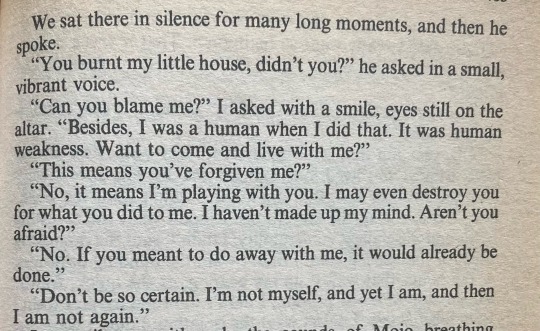
and then louis DOES move in with him. to once again the perfectly restored rue royale townhouse. and then this is louis in the later books deciding to stay with lestat . the way him going with lestat is always acquiescence and surrender. forgiving his transgressions bc theyre inevitable.

bourgeois wife in feudal castle happy ending. there’s no change to me there’s no renegotiation of power even just between the two of them . i'm so normal clearly
106 notes
·
View notes
Text
So I’m doing a Marvelous Mrs. Maisel rewatch (to remind myself of when the show was good). I got to the Season 2 episodes with Benjamin and… I don’t like him. I always thought he was kind of boring, but had a few good moments with Midge, but now…
From the beginning, he’s just so unnecessarily rude to Midge, and only after she riffs along to the radio and proves herself sufficiently “weird” that he shows any interest in her.
Their relationship seems rushed too. We don’t see their first kiss or him meeting the family.
He springs marriage on her out of nowhere, after ambushing her at the park. The man is a doctor and supposedly very smart, I don’t know why he would think this was a good idea. He hadn’t met Joel but he’s proposing? Even Abe points out how rushed their relationship is.
Then there’s Midge, who falls back into old habits. She bends over backwards to meet Benjamin’s desires, even if it means putting herself at risk. She feels like she has to put makeup on in the mornings. She didn’t even mention Benjamin to Susie.
It’s later revealed that he bought a townhouse for himself and Midge, but didn’t consult her about it, because she apparently didn’t even know about it.
Even from their first date there are signs that Benjamin is never going to be enough for Midge. First of all, she knows immediately when and where Lenny’s show is, and it is her first instinct to go to him. Once Lenny is onstage, Midge is captivated. She only looks at Benjamin to gauge his reaction to Lenny. Her approval of Benjamin hinges on his approval of Lenny. (Personally, my favorite part is when Benjamin spends less than a minute watching Lenny and Midge interact and he is immediately like, “Did they…?”)
But the most interesting interactions come in S2E7: Look, She Made a Hat. Benjamin takes Miriam to an art show, something he knows she has no interest in. Now, yes I think you should try to take an interest in your partner’s hobbies, but the thing is, Benjamin keeps leaving to go brag or get drinks, and makes no effort to include her.
Now, contrast that with Lenny in S3E5: It’s Comedy or Cabbage. Lenny says he has a “work thing” which he brings Midge to, which turns out to be an appearance on Miami After Dark. He could’ve easily dumped Midge backstage for the entire show. But does he? Of course not. He brings her out to do a bit, have fun, and get her some exposure. He does this over the objections of the crew, because he loves her.
Returning to 2.7, Midge finds a painting she likes and buys it. She returns to Benjamin excitedly to show it off, but he demeans it. “That’s where they put the very minor artists. Or the mops.” Then he tells her that she overpaid and Midge feels the need to justify her purchase.
After the show, they head to the Cedar Tavern and Midge expressly tells Benjamin that he isn’t paying attention to her. Then, Declan Howell is introduced and Midge is captivated. Here is a man, an artist, who talks dirtier than he looks and can hold a crowd’s attention and make them laugh. And Benjamin is hesitant for Miriam to be around him.
Benjamin abandons Midge again in a situation that he thinks could be dangerous (yes he’s on call but still). And Declan gives Midge his complete attention. He is no longer dismissive, but attentive.
He asks her why she bought the painting she showed him yesterday. He remembered. She seems taken aback by the question, and even more shocked when he doesn’t accept her flippant response. She realizes he isn’t asking to make her feel bad.
When she finally gives her answer, “…She knows a joke that I don’t…” (Midge likes art that is warm and full of laughter which is a piece of characterization that I love), he is staring at her intently, and realizes she is worth showing his life’s work to, being vulnerable in front of. He listens to her answer.
Like Lenny does. Yup. It’s time to talk about The Blue Room.
Lenny stares at Midge like Declan does (but more because it’s Lenny). Lenny was listening to her, he always listens to her, and proves it by quoting her act.
“You are more important than God.”
“You were listening?” Midge asks this like it’s something she’s unaccustomed to (because it is).
“To you? Always.”
Men like Declan, men like Lenny, hold Midge’s interest for a reason: they listen to her. They make an effort to understand her. They show interest in things she likes without real judgement. They are real with her when no one else is. And that’s why it didn’t work with Benjamin. Because he just wanted someone to bum a light.
Midge needs someone who will give her the last puff.
#the marvelous mrs maisel#midge maisel#lenny bruce#lenny x midge#tmmm#tmmm spoilers#the marvelous mrs. maisel
93 notes
·
View notes
Photo










1021. Walter Chatham /// Chatham Townhouse (Pugin House) /// Santa Rosa Beach, Seaside, Florida, USA /// 1989-91
OfHouses presents: Readings, part II - Charlotte Von Moos, ‘In Miami in the 1980s: The Vanishing Architecture of a Paradise Lost’.
(Photo: © Michael Moran. Source: Architecture 02/1992; The Seaside Research Portal, University of Notre Dame's School of Architecture.)
#Readings2#Walter Chatham#USA#90s#OfHouses#oldforgottenhouses#www.ofhouses.com#thecollectionofhouses
57 notes
·
View notes
Text
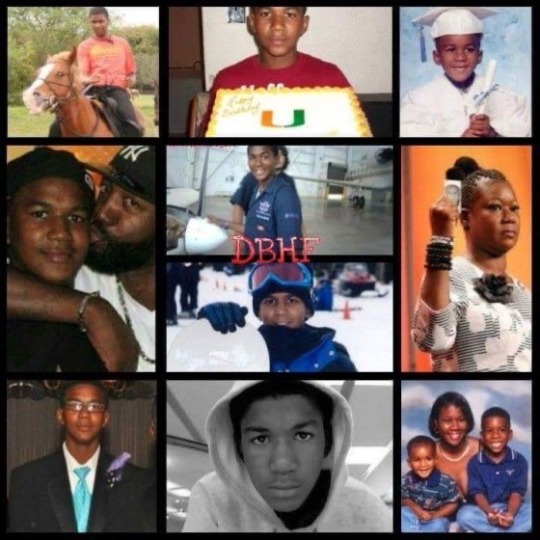
Trayvon Benjamin Martin (February 5, 1995 – February 26, 2012) was a 17-year-old African American from Miami Gardens who was fatally shot in Sanford by George Zimmerman. He had gone with his father on a visit to his father’s fiancée at her townhouse at The Retreat at Twin Lakes in Sanford. On the evening of February 26, he was walking back to the fiancée’s house from a nearby convenience store. Zimmerman, a member of the community watch, saw him and reported him to the Sanford Police as suspicious. While on the call to the police, Zimmerman began following him. Several minutes later, there was an altercation and Zimmerman fatally shot him in the chest.
He was born in Miami and attended both Norland Middle School and Highland Oaks Middle School, in north Miami-Dade County. He attended Miami Carol City High School in Miami Gardens for his freshman and sophomore years. At the time of the shooting, he was a junior at Dr. Michael M. Krop High School in north Miami-Dade. #africanhistory365 #africanexcellence #blacklivesmatter
4 notes
·
View notes
Photo

Orchid Mid-century Villa in #Miami, Florida by Praxis Architecture @praxis_architecture. Read more: Link in bio! Photography: David Hernandez Praxis Architecture: The project is located on an acre lot (approx. 40,000 SF), at the border of an Estate single-family District and a Multi-family zoning district. Surrounded by lush landscaping on 3 sides, and a low-density 3-story Townhouse on the North side; the main commercial road, US 1, is a few blocks away on the North… #usa #florida #архитектура www.amazingarchitecture.com ✔ A collection of the best contemporary architecture to inspire you. #design #architecture #amazingarchitecture #architect #arquitectura #luxury #realestate #life #cute #architettura #interiordesign #photooftheday #love #travel #construction #furniture #instagood #fashion #beautiful #archilovers #home #house #amazing #picoftheday #architecturephotography #معماری (at Miami, Florida) https://www.instagram.com/p/CiNxj-IrlCG/?igshid=NGJjMDIxMWI=
#miami#usa#florida#архитектура#design#architecture#amazingarchitecture#architect#arquitectura#luxury#realestate#life#cute#architettura#interiordesign#photooftheday#love#travel#construction#furniture#instagood#fashion#beautiful#archilovers#home#house#amazing#picoftheday#architecturephotography#معماری
61 notes
·
View notes
Photo

Never Knew Until You by L.E. Royal
After the dissolution of her fourteen-year marriage to her cheating ex-wife, forty-year-old college professor Parker Freeman finds herself adrift. Suddenly middle-aged with so much time wasted, she seeks solstice online where she stumbles upon The Pandora Agency--an organization claiming to help individuals find themselves through submission. Encouraged to be a little wild by her best friend, Parker speaks to the agency and sets up a meeting with a female dominant, Miss Diaz.
Greeted at the door of an impressive Miami townhouse by a young woman, Parker questions her decision as she waits for the girl's mother. Stunned by the reveal that twenty-four-year old Kristina is in fact the Miss Diaz she has come to meet, she is dragged head first into a new world.
Despite Kristina's commitment issues and Parker's shattered confidence, the two enter into a tenuous agreement that sparks Parker's rediscovery of herself. Both are surprised by their compatibility until they stumble across the line from arrangement into relationship, and Kristina calls their time together to an end. When an unexpected catastrophe throws them back together, old demons are finally brought into the light, and both women must decide if letting go of the past is worth the future they could have together.
Genres: contemporary, romance
Get the book from The Book Depository here!
22 notes
·
View notes
Photo

SOLD this super cute Townhome 🏡 in the heart 💚 of South Beach!🌴 Villa Lucca 1 bed | 1 bath | 759 sf Big outdoor area with wood deck patio & gorgeous landscaping on the 1st level and BBQ area on the 2nd level, 11ft ceilings, gas stove, private gated parking ✨ Represented the seller, it’s been quite a ride and I’ve probably never had to solve so many issues during 1 deal 😅🌪but I’m glad we made it happen 🏁 and I got him an amazing price!✨ Contact me if you’re looking to buy or sell a townhome in Miami. I have a few off market options right now in the $1-3M range 🙌 📩 [email protected] 📍Miami Beach #sold #townhome #townhouse #miamitownhomes #miamilistings #townhomeliving #townhomes #miamirealestate #miamirealtor #joanshomesmiami #miami #miamibeach (at Miami Beach, Florida) https://www.instagram.com/p/Cel5AHuubqI/?igshid=NGJjMDIxMWI=
#sold#townhome#townhouse#miamitownhomes#miamilistings#townhomeliving#townhomes#miamirealestate#miamirealtor#joanshomesmiami#miami#miamibeach
0 notes
Text
Stone Raids Wall Street
Once upon a time Oliver Stone was best known for his scabrous screenplays for films such as Scarface and Year of the Dragon. Then his 1986 films, Platoon and Salvador, racked up a slew of Academy Award nominations, and Platoon collected Oscars for direction, editing, sound, and Best Picture. Stone was honored not for safe, Masterpiece Theatre-type films that make Academy members feel good about themselves, but for violent, unpleasant films on subjects considered until recently to be box-office poison—Central America and Vietnam. In one short year, he has emerged as the most interesting and important director in Hollywood. Nevertheless, as no one knows better than Stone, the winds of celebrity are fickle, and when we spoke with him in August, he was anticipating a more qualified reaction to his forthcoming film, Wall Street.
Q: How did you get the idea for Wall Street?
A: The story first came to me while I was writing Scarface. Its get-rich-quick Miami mentality had certain parallels in New York, where an acquaintance of mine was making a fortune in the market. He was like some crazed coke dealer, nervously on the phone nights trading with Hong Kong and Lon- don, checking the telex, talking about enor- mous sums of money to be won or lost on a daily basis. His lifestyle was Scarface North. He had two huge Gatsby-like houses on the beach in Long Island (he couldn’t decide which one to live in), several dune buggies, cars, Jeeps, a private seaplane company, an art collection, and a townhouse in Manhattan. Then he took a giant fall; his empire came crashing down around him. He was suspended from trading; he lost millions and spent millions more in legal fees clearing his name, which he finally did. It made him a different, stronger person as a result, and it was partly this tale of seduction, corruption, loss, and redemption (as well as other stories we heard on the street, among them that of David Brown, a broker convicted for insider trading who served as an adviser on the film) that was the basis of Charlie Sheen’s character in our script.
Q: Wasn’t your father a broker?
A: Yes, he was on Wall Street for 50 years or so. My father’s world was very intimidating to me; I viewed it from an Orson Welles perspective out of The Magnificent Ambersons. | remember the staircases and mirrors. I remember looking down through banisters at Mom’s parties, at the rich people, the sophisticated people, women from Europe with accents, Belafonte or Sinatra on the phonograph singing ‘50s songs. Then they’d go out in packs like in La Dolce Vita to faraway places like El Morocco.
Dad would take me to the movies (how rare to be alone with him)—Dr. Strangelove, Paths of Glory, Seven Days in May—the ones with the ideas, and inevitably he’d come out of the movie and say, "Well, we could've done it better, Huckleberry,” and he’d tell me all the reasons why this plot was silly or illogical. It would make me think, which is one of the things a father is supposed to do. And he’d always say they never did intelligent pictures about businessmen; businessmen were always satirized or were stereotypical bad guys.
Dad believed very strongly in capitalism. Yet the irony of it all was that he never really benefited from it. All his life money was an overriding con- cern. But he never owned a single thing; every- thing was rented, right down to the cars, the apart- ments, and if it had been possible, the furniture. There was an insecurity at the heart of our family existence. I began to resent money as the criterion by which to judge all things, and there grew to be a raging battle between my father and me about it. I found ways to throw away everything I had, which pissed my father off. | went to Yale but dropped out, and he lost the tuition.
We reconciled before he died [in 1985], but by then I had moved away from it all. I didn’t want to go to an office every day from nine to five. I didn’t understand Wall Street. “Going into movies is crazy,” he would say. “You aren’t going to make a dime.”
When I was working on Wall Street, I felt my dad was sort of around in a ghostlike form, watching over me and laughing, because here is the idiot son who doesn’t know anything about the stock market, who can barely add and subtract, doing a film with the grandiose title Wall Street.
I always hated New York, which is what made it so special returning some 25 years later with a crew of professionals, a self-contained artillery unit. (I even got to cast Hal Holbrook, who is everybody’s dream of a father, as my father.) And suddenly | got a glimpse of a mysterious world I'd only scratched the surface of as a child—the adult world, New York in its power, glory, and greed.
Q: You're not dealing with war and revolution in Wall Street, as you were in Platoon and Salvador. It’s a less weighty film.
A: It appealed to me precisely because it is a lesser statement. There is only so much you can say about yuppies. I knew if I sat around for two or three years doing a Hamlet number - should I give the world another film? - I would really drive myself crazy. I would rather turn something out fast, get it over with, give the gold crown to somebody else so I can get on with doing things that I really care about, which are ideas. I’m ready to take a fall. I'm not expecting the same critical praise or the same box office that I got for Platoon.
I think I have always been identified with “‘lowercase”’ films that take people by surprise. It is strange suddenly to be in a front-runner position with Wall Street. I like being a dark horse. Celebrity can hurt the creative process if you let it go to your head. You start weighing your image of yourself instead of somehow keeping your head low down to the ground like a bulldog, telling a good story, and not letting your ego stand in your way.
Q: How did you get a producer for Wall Street?
A: Initially, I brought the script to John Daly at Hemdale. But he didn’t think the audience would go for a movie about people who were making millions of dollars. On the other hand, Ed Pressman and Twentieth Century Fox loved the idea, which was fine with me, because Wall Street was going to have to be shot in New York, and consequently it was going to be expensive. Hemdale is not really into $15 million movies; it would have been a big risk for them and more pressure for me, whereas for Fox it is a medium-budget movie.
Q: Did you get any cooperation from Wall Street?
A: Initially, no. They felt Stanley Weiser (the co- writer) and I were going to trash the Street. Then after the success of Platoon, people started coming out of the woodwork. We hired Ken Lipper, who was formerly the deputy mayor of New York City and was managing director of Salomon Brothers, and we consulted with people such as John Gutfreund of Salomon, and Carl Icahn.
Q: How did the consultants help you?
A: Ken Lipper put Charlie Sheen and Michael Douglas inside Salomon Brothers. He also got us into places like The 21 Club, Le Cirque, and, most important, the New York Stock Exchange, which was a first. No film had ever been done there. We actually shot on the floor while they were trading. A lot of the older traders were upset because they were trying to make money and we were creating a disturbance, but there were many more Vietnam veterans on the floor than I had imagined, and they had seen Platoon.
Ken was also on the set. He helped us with details: how brokers deal with sales, how they write up orders, their body language—how they hold a telephone, what is the pace of the conversation. I had no clue how these things are really done.
Q: What was it like to shoot in New York?
A: Sixty-ninth Street and Madison was a fucking mess. Michael Douglas was shaking hands all day. Bill Murray came by, actors, businessmen, kings, diplomats—it was a constant stream of Hi Daryl [Hannah], Hi Michael, Hi Charlie. We'd try to shoot a scene and there would literally be a thousand people coming to look. It was impossible to work under those conditions. So | hired about 200 extras and filled the sidewalk with them so we could control the streets. If anybody walked onto that sidewalk they would see all these people standing stock still waiting for the cue for action. It was so bizarre, they would skirt the sidewalk and walk away.
And here’s an example of how unions can fuck up reality. | wanted real derelicts, but there’s a law in New York that the first 125 extras in major feature films have to be union. We made up the extras, but they never looked real. So if I need a real bum in a scene it has to be the 126th man. I just threw up my hands in disgust. My derelicts will have to go in my next picture
Q: Why did you cast Charlie Sheen in the lead role?
A: | thought that he could do a good job of playing a bad boy, showing the negative side of Wall Street. There is a devilish side to Charlie that didn’t come out in Platoon, where he was more of an idealized figure. I think he’s been in trouble, and that shows in his personality, a strong streak of rebelliousness combined with an inner grace passed on from his father, Martin Sheen, who plays his father in the film. Charlie is only 22, which made him much younger than the brokers being busted on Wall Street, but we aged him with good suits, a haircut, and he gained a little weight from the good life in New York; his face is a little jowlier than normal. He invested his own money in the market, hung out with the young brokers at Bear Stearns and Salomon Brothers, drank with them at the South Street Seaport, kids just out of college who have to pull $100,000 in the first or second year just to occupy a space on the floor. Gone are the days of my father, when people were brought along slowly; there seems to be less mercy in the system, and as always the corruption is subtle, almost undetectable in a black and white sense. The corruption of all flesh—needing more and more, until like fat bugs we pop and bleed all over the page.
Q: I understand Charlie’s character was Jewish in the first draft of the script. Why did you change it?
A: His name was Freddie Goldsmith, but that would have necessitated a different kind of actor. I would never have believed Charlie as Jewish; he doesn’t have that kind of quickness, the mannerisms, the nerviness. He is more of a laid-back type; at best he could play a Catholic, Protestant out of Queens. I also wanted to drop the Jewish angle because I think that too many people think that Wall Street is run by Jews and that they are all corrupt, a bunch of gangsters. I just didn’t want to give them any more fuel. My father— who was Jewish, I’m half Jewish— always warned me that I would probably see a pogrom in the United States in my lifetime. I didn’t believe him when I was a kid. I believe it now.
Q: Did you have Daryl Hannah in mind from the beginning?
A: I've loved Daryl from way back. She’s an admirable person with a real passion for left-wing causes. And she looks beautiful on film. She’s the kind of girl a guy like Charlie would go after. She would be the type of girl who is pretty enough to be around the big money guys. Daryl had problems with her character because it wasn’t a character she particularly liked. She was scared by it. She is a natural, simple girl, and here was a character who was totally artificial. She had a major problem trying to learn that language. She went to a voice coach in New York and tried to change her flat Southern California/Chicago accent into something more nasal, more New York, upper class, and affected. I was tough with her. I beat her up, in a metaphoric sense, and in the early stages I am sure she wanted to quit. I think I made her cry a few times, but I wasn't really pleased with her wanness and passiveness, which were difficult to get through. She needs a very, very strong director. I am not sure I succeeded.
Q: Weren't you taking a chance using someone like Michael Douglas, who’s never played a bad guy?
A: I was sort of worried about him because | had been warned by a highly placed studio executive that he would be in his trailer all day reading scripts and on the phone to Los Angeles. But he was always on time, never one minute late in the whole shoot, and very easy to work with as well. He seemed to be aware that it was a big role for him. He told me at one point that his dad had implied that he was finally about to become a real actor; that he had always played wimps, and that this was a role where he could play more toward his father, who could do a heel as well as a hero. Michael loved that idea.
I was amazed, for an actor who has done so many movies, how nervous he was in the beginning. He couldn’t believe it when on the first day I gave him three pages of monologue, like something out of Paddy Chayefsky. He'd never had speeches like that in his life. And then the second day I stuck a hand-held camera in his face about six inches from his eyeballs—he was on a plane, so I wanted to create a sense of movement. He said it was very difficult for him to act, to concentrate and remember his lines, staring at the camera. Then he hit his stride, and by the time we got to the scenes in his office, he was on top of his game.
Q: How do you prepare the actors?
A: In the rehearsal period I try to outline the context of the characters, what their inner life is about, what their backstory is. I try to help the actors suggest things and then let them run with those ideas. Then we have readings; you can see the way an actor is interpreting a role. Once we start filming, we relive what we did in rehearsal seven or eight weeks before. Often it comes out differently; nuances emerge because the material has been marinating in the actor's subconscious. I clear the set except for the actors, so that we keep it quiet. The rehearsal itself can take anywhere from 30 minutes to six hours, in the course of which it should become clear what everybody is looking for in the scene and how to play it. Whether they succeed doesn’t interest me; in fact, I'd rather that they didn’t do it and not spoil themselves emotionally before the cameras go on. Too often you have a good rehearsal and it never comes back.
Q: Do you improvise?
A: I always try to encourage spontaneity. I like to be surprised. Astonish me! It is easy to play a scene predictably; a director falls into that because he has to complete the film in a limited period of time. He can clock out all the spontaneity and all the truth. That is the hardest thing a director has to face; he has to stay fresh.
Q: What do you do when a scene isn't working?
A: I often deal with it by rewriting extensively on the spot. Part of that process includes listening to the actors. Some actors just can’t say certain words, or they will feel uncomfortable with a speech. They will say, “Gee, Oliver, do I have to say that line? Can’t I just do a look?”
Or I try to use the camera to respond to a mistake. You shoot the scene in such a way that you can cover the blemish. You change the angle, you move the camera. We did enormous amounts of moving camera in this film because we are making a movie about sharks, about feeding frenzies, so we wanted the camera to become a predator. There is no letup until you get to the fixed world of Charlie’s father, where the stationary camera gives you a sense of immutable values.
I generally work fast. | did Salvador in 50 days. I did Platoon in 54 days. | did Wall Street in 53 days. I came in seven days ahead of schedule and close to $2 million under budget. We never wasted an hour. If it rained, we made it a rain scene: Charlie goes to the beach in the rain. I hate waste. When I read about directors shooting a million feet, it makes me sick. They say film is cheap, but how can you sit there in the editing room and have to go through 30 or 60 or 95 takes? Ultimately, take 30 doesn’t look that much different from take 7. Usually after six or seven takes, I let it go. The most I ever did was nineteen takes.
Q: Do you relax in the editing room?
A: Hell, no. I tend to shoot three-hour movies and cut them down to two hours. My scripts are long; I blow a lot of my time shooting scenes that never get into the movie. We had 80 speaking parts in Wall Street. | will probably cut twenty of them. Editing to me is like a tremendous retreat, a march back from Moscow, a rout. When you are writing and directing, you feel like you’re on a perimeter, expanding. When you are editing you are withdrawing your perimeter as quickly as possible and trying to maintain the CP, the command position, because it is about to go under. Philosophically, it always seems to be that movies are about limitation. Every time I make a movie my original concept shrinks. It is a truth about movies that less is more, that sometimes when you try to do too much you get scrambled, you get killed.
Q: How would you describe the theme of Wall Street?
A: I wanted to concentrate on the ethics of the characters and see where they lose their way, where they lose their sense of values, where net worth starts to equal self-worth. I think Wall Street is really about the urban culture of the ’80s. The pressure is enormous on these young guys to produce. | think they are perverted right off the bat. Why would someone who is making $100 million have to make another $20 million? Because he has to stay ahead of the next guy. Money is a way of keeping score. A line in the script says it all: “How many boats can you water-ski behind?’ Ultimately, not about money, it’s about power.
There is something patently unhealthy in using money just to make money rather than to create value. How can you justify threatening to take over a company, then selling it back and making $40 million, meanwhile forcing the company to spin off its assets and lay off employees?
Q: Is there a remedy for insider trading?
A: Probably not. There is no question that outsiders don’t do as well as insiders. I have invested in the stock market now off and on for 30 years, and I never made any money at it. It is a privileged club, an oligarchical institution in which the rich talk to the rich. They don’t talk to the poor. A guy goes to La Céte Basque for lunch. He sees a CEO from some other company and tells him some piece of information about a company that’s going into semiconductors or something, and he is going to buy into it. That’s the way the system works. You read about these kids who are making a million bucks, two million bucks a year—it demoralizes the person making $40,000 a year. All of a sudden everybody needs a Porsche or a VCR or a fishing boat. And this is what fuels America, more and more greed. We deal with these issues by staying inside a very small story, one fish in one Wall Street aquarium and what happens to that fish. #
-Peter Biskind, "Stone Raids Wall Street," Premiere, Dec 1987 (Vol 1 Issue 4)
#oliver stone#peter biskind#premiere#wall street#charlie sheen#michael douglas#daryl hannah#judaism#new york#filmmaking#filming#editing
2 notes
·
View notes
Photo

SALE IMAGE: Cristian Black & Bruno Junqueira DATE: 03/31/2023 ADDRESS: 112 Reef Lane MARKET: Key Biscayne ASSET TYPE: Townhouse ~ ACRES: 0.3 BUYER: RG Real Estate FL Corp SELLER: Laura Neiva; Evando J. Neiva - Cogna Educação BUYER'S REP: Cristian Black - Berkshire Hathaway HomeServices EWM Realty (@BHHSnenyhvp) SELLER'S REP: Bruno Junqueira (@BrunoJunqueira1) - Coldwell Banker Realty (@ColdwellBanker) SALE PRICE: $10,000,000 SF: 5,000 ~ PPSF: $2,000 #Miami #RealEstate #tradedmia #MIA #OceanaKeyBiscayne #KeyBiscayne #Townhouse #RGRealEstateFLCorp #TriplicateResourcesUSLLC #LauraNeiva #EvandoJNeiva #CognaEducacao #CristianBlack #BerkshireHathawayHomeServicesEWMRealty #BrunoJunqueira #ColdwellBankerRealty
#Miami#RealEstate#tradedmia#MIA#OceanaKeyBiscayne#KeyBiscayne#Townhouse#RGRealEstateFLCorp#TriplicateResourcesUSLLC#LauraNeiva#EvandoJNeiva#CognaEducacao#CristianBlack#BerkshireHathawayHomeServicesEWMRealty#BrunoJunqueira#ColdwellBankerRealty
0 notes
Note
tell me a story abt u!!
I have been thinking abt this because I'm not sure what might be interesting to share.
When I was little I used to find a lot of baby birds that had fallen out of their nests. It was mostly at a townhouse my family moved in to near a canal in North Miami. I’d bring them home and take care of them in shoeboxes until my parents learned about a bird rescue we could take them too. One of them died, but it had been injured. The others all lived. It was a short time we lived there, but that was a big part of it for me.
5 notes
·
View notes
Text
Lost in Space #48
Howdy, Isolans! We have conducted an activity check for the month of January!
If your character isn’t on this list, make sure to check this page to see how many stars that character has earned this month! Stars can be used for purchases at the marketplace.
The blogs that were removed from the Isola Radiale masterlist are under the cut. Note that both blogs with broken links and deactivated accounts will be included both at the top of this list and in their proper categories.
If you were removed in error, please simply send a re-application message. Several different people work on the activity checks, so it’s possible there are mistakes! If this happens to you, you will be able to keep everything you previously had, you just may be placed in a different residence.
Our general activity rules regarding checks are as follows:
Make at least two in-character posts during a calendar month (for instance, if the activity check is for January, have two in-character posts between the 1st and 31st of January).
Only one meme response of 300+ words counts as activity.
Only one drabble of 500+ words counts as activity.
One-liners or minis not tagged #isola mini also do not count.
Please Note: If you are removed during two consecutive activity checks, you will not be allowed to re-apply as that character for one calendar month.
Additionally, anyone removed during the activity check will have a 12-hour window from the time of posting to re-claim their character. Any character not reclaimed during that period will be open to the community at large.
Please send in your reapplications from the account of the character that was removed.
BROKEN URLs
Tony Tony Chopper (broken link) (APARTMENT 306)
Rocksteady (broken link) (HOUSE 105)
THE ADVENTURE ZONE
Barry Bluejeans (The Jastle, Golden)
Indrid Cold (New Sylvain, Sky-Strewn Isles)
AI: THE SOMNIUM FILES
Kaname Date (HOUSE 131)
BALDUR’S GATE
Lae’zel (TOWNHOUSE 204)
BLEACH
Nanao Ise (HOUSE 111)
Orihime Inoue (HOUSE 106)
BORDERLANDS
Gaige the Mechromancer (TOWNHOUSE 214)
CELLS AT WORK!
AE-3803 (TOWNHOUSE 223)
CHAINSAW MAN
Angel Devil (APARTMENT 325)
CRASH BANDICOOT
Crash Bandicoot (TOWNHOUSE 208)
CUCUMBER QUEST
Steve (CONDO 415)
DARK SOULS
Sif the Great Grey Wolf (Sif’s Den, Mistwood)
DEAD BY DAYLIGHT
Dwight Fairfield (TOWNHOUSE 201)
Ghost Face (Danny Johnson) (CONDO 418)
FALLOUT
Piper Wright (TOWNHOUSE 205)
FATE
Caster (Arturia Pendragon) (Sky-Strewn Isles - Winter’s Memory)
Caster (Nursery Rhyme) (HOUSE 102)
Illyasviel von Einzbern (HOUSE 128)
Irisviel von Einzbern (APARTMENT 323)
Ritsuka Fujimaru (M) (APARTMENT 303)
Sakura Matou (HOUSE 113)
FINAL FANTASY
Fandaniel (TOWNHOUSE 221)
Warrior of Light (Dancer - Diana Enfield) (HOUSE 133)
FIRE EMBLEM
Julius (TOWNHOUSE 225)
HOTLINE MIAMI
Jacket (CONDO 423)
IDENTITY V
Andrew Kreiss (Grave Keeper) (CONDO 413)
Joseph Desaulniers (Photographer) (Aesop's cottage - Mistwood)
Luca Balsa (Prisoner) (CONDO 407)
JUJUTSU KAISEN
Inumaki Toge (APARTMENT 325)
KAMEN RIDER
Dan Kuroto (CONDO 415)
KEKKAI SENSEN
Leonardo Watch (HOUSE 107)
LEGO MONKIE KID
MK (Condo 417)
MAGI: THE LABYRINTH OF MAGIC
Sinbad (TOWNHOUSE 221)
MARS RED
Shuutarou Kurusu (CONDO 410)
MASS EFFECT
Ghost (OC) (CONDO 421)
MEGAMAN
Bass (HOUSE 109)
THE MURDERBOT DIARIES
SecUnit (Murderbot) (Preservation (4BR) - Sunset Circuit)
ONE PIECE
Tony Tony Chopper (BROKEN URL) (APARTMENT 306)
OPERATION: TRUE LOVE!
Go Eunhyeok (APARTMENT 323)
ORIGINAL CHARACTER
Relic (HOUSE 101)
Rosa Cervantes (Rosa Cervantes’ Penthouse (4BR) - Archimedes)
THE OWL HOUSE
The Collector (APARTMENT 320)
Eberwolf (CONDO 412)
PERSONA
Akira Kurusu (HOUSE 114)
POKEMON
Mewtwo (Respite (6BR)) (The City of Glass)
THE ROCK-AFIRE EXPLOSION
Looney Bird (APARTMENT 308)
THE SANDMAN
Death of the Endless (APARTMENT 320)
SHOVEL KNIGHT
Specter Knight (HOUSE 105)
SONIC THE HEDGEHOG
Doctor Starline (HOUSE 115)
Sally Acorn (CONDO 419)
Sonic the Hedgehog (APARTMENT 315)
TALES OF
Mithos Yggdrasill (HOUSE 114)
Shionne Imeris (broken link) (CONDO 421)
TEENAGE MUTANT NINJA TURTLES
Rocksteady (broken link) (HOUSE 105)
TOUHOU
Marisa Kirisame (TOWNHOUSE 216)
TRANSFORMERS
Bumblebee (HOUSE 117)
TWISTED WONDERLAND
Floyd Leech (CONDO 406)
Malleus Draconia (HOUSE 109)
Riddle Rosehearts (CONDO 404)
UNDERTALE (DELTARUNE)
Asgore Dreemurr (APARTMENT 311)
3 notes
·
View notes
Note
When did the thought of marriage to your MC first cross Ethans mind? What was his reaction? How long afterwards did he seriously consider the idea of proposing? And how long after that did he actually propose?
This is such a good question! Because it involves some spoilers for With and Without, I'll be a little vague, but I'm excited to share.
Ethan first thought of proposing roughly a year into their relationship. For the last few months, their relationship had been strained by Bloom's new leadership of the hospital and their own disagreements on how public they should be, but when they'd finally worked it out, Ethan woke up to Charlie sleeping in his bed and suddenly knew he was going to propose. The thought came all at once -- no internal debate about whether they were ready or if he would be a good husband. For the fist time in his life, he didn't overthink it.
Deciding to propose was a relief, honestly. He instinctively knew that it was the right decision, and he was so sure of himself that he almost woke her up right then to pop the question.
But Charlie needed more time, and he knew that. So, he waited.
Slowly, he introduced the idea of marriage into conversation. He showed her listings for nearby townhouses and spent Saturday mornings discussing the kind of future they could have. Once he saw she was receptive to the idea, he bought a ring.
A year after his decision to propose, Ethan took Charlie to Miami to celebrate her passing her boards, and he proposed on the very balcony where they kissed for the first time.
8 notes
·
View notes